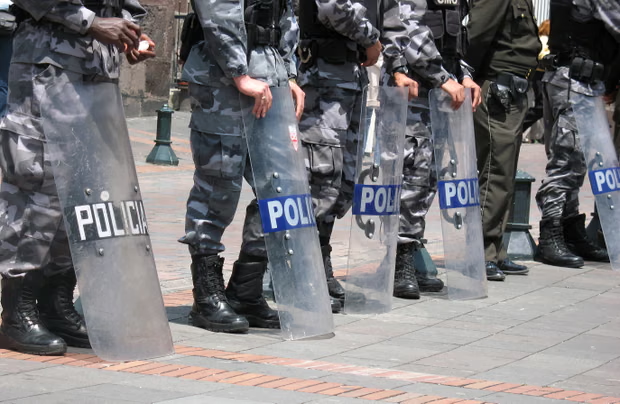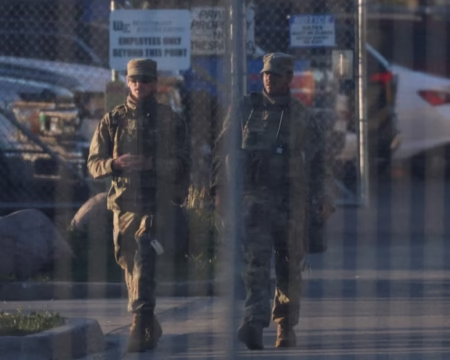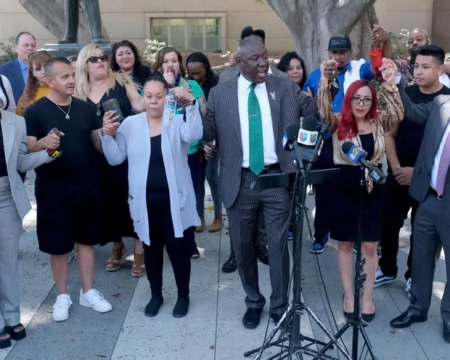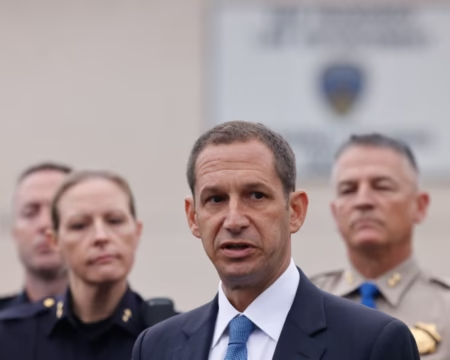Oregon Republicans shared a doctored image online claiming that protests in Portland, Oregon, were out of control. The posts came just before a federal judge blocked former President Donald Trump from deploying California’s National Guard to the city.
The Republican Party celebrated the planned deployment of 300 California National Guard troops in posts on Facebook, Instagram, and X. Their statement said the troops were sent to protect federal facilities and personnel after a judge ruled the Oregon National Guard could not be used.
The images used in the posts showed a line of police officers holding riot shields and a crowd of young men with flares lighting up a night sky. The visuals were meant to support Trump’s false claim that the city is “burning to the ground” during protests against immigration sweeps.
However, the image was not from a real event in Portland. It was a composite of two unrelated photographs from South America taken years apart. The photo of the police officers was from Getty Images, showing South American riot police in 2008. The shields marked “Policia,” the Spanish or Portuguese word for police, revealed the location was not Oregon. Other photos in the same set indicated the image was taken in Ecuador.
The image of the protesters with red flares came from Pexels, a free stock photography site. The photo was taken by a Brazilian photographer in 2017 during a street demonstration. Both images were combined to create a misleading impression of Portland protests.
When a Guardian reporter highlighted on social media that the images did not show Portland protests, the Oregon Republican Party responded on X, saying, “We’re not reporters, just bad memers.”
The misleading posts drew attention as they coincided with Trump’s attempt to deploy California troops to Portland, which had been blocked by a federal judge. The legal ruling prevented the National Guard from being used in the city, halting the planned deployment meant to protect federal property.
This incident raises concerns about the use of manipulated images by political parties to exaggerate events and influence public opinion. Observers noted that the actual protests outside the Immigration and Customs Enforcement office in Portland were relatively small and peaceful compared with the dramatic scenes depicted in the doctored images.
The use of international photos to misrepresent local events highlights challenges in verifying social media content. Experts warn that such fabrications can mislead the public, escalate tensions, and distort perceptions of political and social issues.
The Oregon Republican Party’s posts are part of a broader trend of using social media visuals to amplify claims of unrest. Fact-checkers and journalists continue to monitor such activity to ensure the public receives accurate information about protests and civic events.







